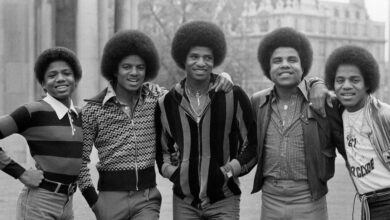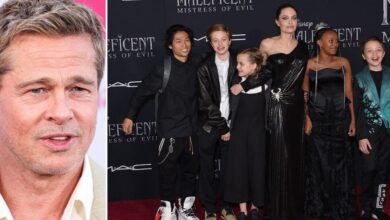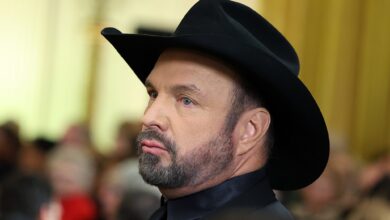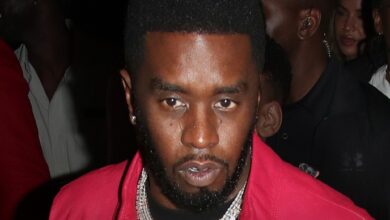‘Emily in Paris’ Star Lucas Bravo on Emily and Gabriel Romance, Camille Pregnancy
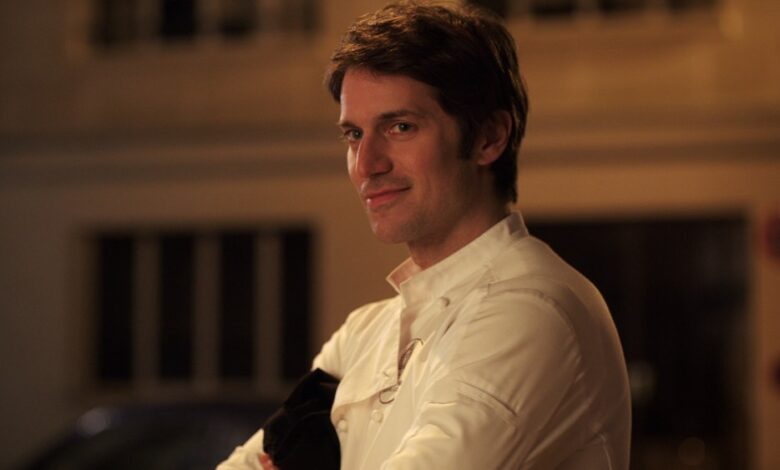
SPOILER ALERT: This post contains spoilers for Season 4, Part 1, of “Emily in Paris,” now streaming on Netflix.
For Lucas Bravo, who plays dreamy chef turned restaurateur Gabriel in Darren Star’s “Emily in Paris,” the fourth season of Netflix’s breezy romantic dramedy represented a return to the cheeky, playful Gabriel of old.
“When you’re in character, and you’ve been sad and melancholic and chasing after something that’s drifting away from you, it feels good to reconnect to the flirtatious playfulness — and to finally play a relationship between two people that actually want to be in one,” Bravo tells Variety.
The relationship in question is between Gabriel and Lily Collins’ Emily Cooper, the perky American marketing executive who has gradually adapted to life in Paris. After four seasons of will-they-or-won’t-they, Emily finally decides that she wants to pursue a relationship with Gabriel, the charming neighbor who was among her first friends in the City of Love — despite the fact that Gabriel’s ex, Camille (Camille Razat), is pregnant with Gabriel’s first child. (Or so they think.)
“I felt excited to see where this relationship could actually go after just having a glimpse, and not really knowing if we would ever get back together,” Bravo says, referring to Emily and Gabriel’s steamy hookup at the end of Season 1. “I could not wait to shoot those scenes, and I feel like it gave us the opportunity to bring the connection and the chemistry to another level.”
Below, Bravo discusses the experience of shooting the early stages of Emily and Gabriel’s long-awaited love story — and the inevitable fallout from Camille’s (Camille Razat) big secret in the midseason finale. (Part 2 of Season 4 drops on Sept. 12.) He also opens up about the challenges of trying to do comedy in a foreign language, the culture shock he experienced living in the U.S., and why he has grown to embrace the “boy next door” label that has defined his career thus far.
Emily makes the decision to be with Gabriel, rather than Alfie, at the big masquerade ball in Episode 3. How would you describe the experience of shooting that intimate dance between Emily and Gabriel there?
It was an important scene that when we read it, we were like, “OK, now is our chance to show what they’re all about and what we’re rooting for, and also invite people into their secret bubble.” We had a lot of fun doing it, and we were honestly very focused and serious that day. We really wanted to get it right. It’s mostly been about Lily since Day 1, since Season 1. I was the new guy, I had so little experience — so I just connected, and dived into her eyes. She played the first note, and I just tuned into her melody, and we’ve been craving to make it even more romantic and inviting. It’s not always that you get a shot at passion, at portraying that kind of loving connection, so we were really psyched to do it.
Lily Collins as Emily, Lucas Bravo as Gabriel.
Courtesy of Stephanie Branchu/Netflix
Did you have a favorite scene from the arc of that relationship in the first half of this season?
I think my favorite is longer than a scene. It’s an entire night. It’s from Episode 5, when he’s finally able to bring Emily to meet the other chefs and they play Biscuit, and then they walk on the bridge and say “I love you” for the first time, and then they go back home. That’s the first time you actually see them not just reconnecting or fighting — you actually see them deeper into what their relationship could be. We loved shooting those scenes and getting closer, and making that bubble even more romantic.
Episode 5 ends on a couple big cliffhangers: Gabriel learns he isn’t getting a Michelin Star after all, and Camille discovers she isn’t actually pregnant with Gabriel’s baby — but can’t bring herself to tell him yet. Where do you think we leave Gabriel at the end of Part 1, and where will we find him at the start of Part 2?
I think we leave him relieved, because even though he’s dreaming about that star, he was under a lot of pressure. At the end of the day, he has ambitions, but Michelin Stars are a lot of work. It’s a daily anxiety, it involves a lot of time, money and people, and I think he was released.
So, by the end, it’s not so much that he’s in denial. He’s just trying to refocus his prism of perception to what he has, instead of what he is chasing after. He has Emily, a baby on the way. We could think that he is in denial, but we leave him feeling peaceful, and we find him at the beginning of Part 2 just high on love with Emily, and just wanting to explore that relationship further.
Lucas Bravo as Gabriel, Camille Razat as Camille.
Courtesy of Stephanie Branchu/Netflix
How will Gabriel handle the news that Camille is not actually pregnant with his baby?
I think it’s going to be intense for him because he’s really happy about this baby. The promise of the baby intoxicated him, and it gave him the confidence to chase after the Michelin Star and Emily. His confidence is going to be affected. And even though there’s so much love between him and Camille, and he could forgive her, it’s a big lie. It’s nothing you haven’t seen before though, because he’s always going through a lot.
Prior to landing your role on this show, you worked part-time as a sous-chef in a French and Japanese fusion restaurant. When we see Gabriel cooking in the kitchen, how much of that is actually you?
We reached the point where I’m just doing the chopping, playing with the casserole, and playing with the knives for the closeups of the hands. But now, we have a “stunt cook.” That’s what Darren calls him. Because we needed a serious Michelin Star-worthy menu, we got a green Michelin Star chef. The green Michelin Star means that you get ingredients from not further than 20 miles away from your restaurant, that you recycle everything. There’s an entire chart, but he created the perfect menu, and those are real dishes and real plates that you can taste when you are shooting the scene. And those things are out of my control. It’s just too good!
The thing is, when you shoot scenes, you have to have 10 different versions of the same plate, so we can shoot, eat and reuse everything, and it’s too much when you’re in the middle of shooting the season. I can’t arrive at the studio at 5 a.m. and start cooking 25 plates for scenes while learning my lines and being on set, so we leave that to the professional.
Courtesy of Stephanie Branchu/Netflix
Comedy is probably one of the most difficult genres you can tackle as an actor, and the fact that you and the other French actors on this show are able to do it well in a different language is even more impressive. Have you noticed any big differences between trying to land a joke in English compared to French?
You know what? I’ve been waiting for that question for the past five years. We’ve been talking about this — with Camille and Philippine [Leroy-Beaulieu, who plays Sylvie]. Nobody ever asked us or acknowledged the fact that we do all this in a foreign language.
Part of us were proud. We’re like, “If it’s not even a debate, that means we’re doing it well.” But I love that saying: “Just because someone carries it well doesn’t mean it’s not heavy.” It takes more work, because our brain translates it and then we have to learn the lines. The most difficult part is pronunciation because Americans are very on the nose, and the French is really in the throat. And sometimes, there are words we cannot pronounce. We’re just struggling and struggling, and we have to shoot the scenes many times.
But if you were asking me what is the difference, I feel like French acting is more naturalist, more minimalistic, and English acting is more open. The face has more expression, the eyes are bigger, the voice is lower, and even the physicality is more engaged. It’s more expansive. It’s a bit bigger.
Is it easier for you to land a joke in English or French now?
I do believe that my comedic timing is better in English, and I find it easier to land a joke in English. It’s a great language for jokes. I grew up with a lot of American movies and shows, so my comedic timing and sense of humor on set while acting in English is more rich and I have more resources, so to speak. I feel like I’m funnier in English than in French.
On “Ticket to Paradise,” when I was shooting with [George] Clooney and [Julia] Roberts, at the end of the scenes, I would improvise some stuff and they would be cracking up, and I would be like, “Wow, this is really working, actually!” So they gave me the confidence to dig further into my English comedic timing, and I realized that there was something to work with.
What kinds of shows and movies did you grow up on?
My favorite movie as a kid was “Dance With Wolves” because I was fascinated by the idea of just leaving your kind to embrace a different culture and instead of trying to change it, just becoming part of it. It really resonated with what I was going through as a kid, constantly moving and changing cities and reinventing myself.
“Once Upon a Time in America,” because there was something so brutal and violent, but so real at the same time. There’s a lot of things that were fascinating because you wouldn’t see them anywhere else.
Funnily enough, I think the first show that I was obsessed with, when I was 16, was “The O.C.” I don’t know why, but I started watching it, and after that I dived into “Sex and the City,” which is ironic because then I got to work with Darren. But my sexual education, my English lessons, were mostly “Sex and the City.”
It sounds like “The O.C.” and “Sex and the City” were your entry point into American culture.
I feel like it was. And the same way Parisians sometimes are like, “Yeah, ‘Emily in Paris’ is not right. This is not the truth about Paris.” I’m like, “My truth about the States was a show that was created by the same creators.” So I see the nuances, and I know exactly that you have to take things for what they are, and it’s just one side of the story, one prism of perception. You can embrace it or not, but it’s made for escapism and entertainment — and this is our goal. This is what we’re trying to accomplish here.
So much of this show is built around the culture shock that Emily experiences as an American expat living in Paris. You spent a few of your early adult years living in Los Angeles. What was the biggest culture shock that you experienced as a French person living in America?
When I left law school, I was 18 and I moved to L.A. It was a land of freedom for me. It was my first time actually being on my own and having so much time, space and freedom to do and go as I please. My cultural shock was also connected to my own life experience, but I guess I would say [I was struck by] generosity. There’s something about the States that is unapologetically trying to make things always better, bigger and tastier. It was crazy for me, as an 18-year-old, to see how big the plates are at the restaurant, how intense the flavors can be. That was the biggest cultural shock I think I got — this desire to always make things better. In France, we are trying to always go back to the old days and reduce everything, and try to be focused on quality.
I don’t know if I’m saying this correctly because I’m not saying that any country is better than the other one, but there’s a real need in the States to label everything. Anything that isn’t labeled is either scary or rejected because everything has to be placed in a box and defined. I feel like in France it’s not as set in stone. There’s still room for the unknown.
A few years ago, when “Emily in Paris” first became popular, you admitted that the idea of being called a “heartthrob” made you very self-aware and even a little uncomfortable, because you didn’t want to be defined by your looks. How has your relationship with that label — and being known as the boy next door — changed over the years?
It’s a really good question, because after the first season, I really wanted to drift away from that character. I wanted to have Zooms with Netflix because they were like, “What would you like to do? What are you looking for?” And I was telling them, “I want to play a dirty character. I want to play something dark, a bad guy. I want to show range. I want to show I’m not just the boy next door.” And then nothing really happened.
I realized that instead of trying to be seen as something else as fast as possible, I should actually give people the time to connect to that first impression of me before I completely disrupt it. Some people connected to that character and that show, which brought me so many opportunities and grace in my life. So now I accept it more, and this is how I ended the fourth season. I’m just going to give back to all the people that sent me love and affection, and connected to my work. I’m not going to try to be as far as possible from Gabriel because he is the guy who started my career, so to speak. So I’m at peace with it now.
It’s funny, because when I stopped wanting to play those roles, they fell into my lap. I spent the entire year shooting crazy movies with crazy characters. It was a great lesson, and I think we — the entire cast — are all learning. We were babies when it started, and I had zero experience. It takes time to understand things, and I believe it took me three to four years to actually accept things for what they are and be grateful for the ride.
What kinds of projects are you being offered now?
I’m still auditioning. They’re not throwing scripts at my face, which I love. It keeps you on your toes. Comfort is your worst enemy as an actor. It pushes you not to challenge yourself, and then you get very self-conscious — and you should never be as an actor.
But this year, I shot “The Balconettes” with Mélanie Laurent which went to Cannes, and I was playing a sociopath. And then I played a conman with Mélanie Laurent as the director in “Free.” There are lots of cool projects that are miles away from what I’m doing in “Emily in Paris.”
You mentioned your upcoming collaborations with Mélanie. What did you see in her past films as a director that made you want to work with her so closely?
I always wanted to work with her. I think the one we shot together is her eighth movie or something like that, and she’s a terrific artist. Mélanie’s just operating out of love, and everything she’s ever shot I’ve been a fan of. My favorite one was “Le Bal des folles” [“The Mad Women’s Ball”]. As an actress, I’ve admired her for years. And as a director, she’s so amazing.
It’s so good to have the opportunity to be directed by women, because they have such a different eye. They know how to film you differently, how to produce the light and to bring out your femininity, your vulnerability — which is, for me, what is most important at the moment. We need to see more of that in cinema. We’ve had centuries of masculinity, and I feel like we need to show something else. So when you shoot with artists like that, they bring that [out] of you, and I gained so much experience with her. She taught me so much. It wasn’t so much about what made me want to work with her; it was more about what made her want me for that part. I was just so grateful to have this role offered to me, and I hope I did a good job.
This interview has been edited and condensed.



